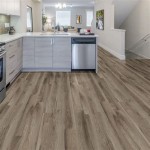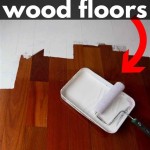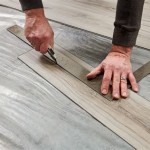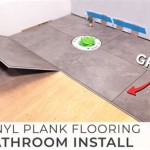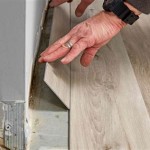Comparing the Pros and Cons of Popular Kitchen Flooring Materials
Choosing the right flooring for your kitchen is an important decision that can affect the look, feel, and functionality of your space. With so many different materials available, it can be overwhelming to know where to start. To help you make an informed choice, we've compiled a comprehensive guide comparing the pros and cons of the most popular kitchen flooring materials.
1. Ceramic Tile
Pros:
- Durable and easy to maintain
- Water-resistant and stain-resistant
- Available in a wide range of styles and colors
- Resists scratches and dents
Cons:
- Can be cold and hard underfoot
- Grout lines can get dirty and require regular cleaning
- Installation can be expensive
2. Porcelain Tile
Pros:
- Even more durable than ceramic tile
- Less porous and water-resistant than ceramic tile
- Available in a variety of sizes and shapes
- Resists fading and scratching
Cons:
- Can be more expensive than ceramic tile
- Installation can be more challenging
- Can be slippery when wet
3. Vinyl Flooring
Pros:
- Affordable and easy to install
- Water-resistant and stain-resistant
- Available in a wide range of colors and patterns
- Can mimic the look of natural materials like wood and stone
Cons:
- Can be prone to dents and scratches
- May not be as durable as other materials
- Can release volatile organic compounds (VOCs) during installation
4. Laminate Flooring
Pros:
- Affordable and easy to install
- Durable and scratch-resistant
- Available in a wide range of styles and colors
- Can mimic the look of natural materials like wood and stone
Cons:
- Not water-resistant
- Can be noisy to walk on
- May not be as durable as other materials
5. Hardwood Flooring
Pros:
- Beautiful and timeless appearance
- Durable and long-lasting
- Can increase the value of your home
- Available in a variety of species and finishes
Cons:
- Expensive to install and maintain
- Not water-resistant
- Can be prone to scratches and dents
- Can be noisy to walk on
6. Cork Flooring
Pros:
- Sustainable and eco-friendly
- Durable and shock-absorbent
- Warm and comfortable underfoot
- Naturally water-resistant and anti-microbial
Cons:
- Can be expensive to install
- Can be prone to fading in direct sunlight
- May not be as durable as other materials
7. Stone Flooring
Pros:
- Beautiful and luxurious appearance
- Durable and long-lasting
- Can increase the value of your home
- Available in a variety of colors and textures
Cons:
- Very expensive to install and maintain
- Not water-resistant
- Can be cold and hard underfoot
- Can be prone to scratches and chips
Making the Right Choice
The best kitchen flooring material for you will depend on your individual needs and preferences. Consider the following factors when making your decision:
- Budget: Flooring materials vary greatly in price, from affordable options like vinyl to more expensive options like stone.
- Lifestyle: If you have pets or children, you'll need a material that is durable and easy to clean.
- Kitchen use: If you do a lot of cooking or have a busy kitchen, you'll need a material that is water-resistant and stain-resistant.
- Style: Choose a material that complements the overall style of your kitchen.
By carefully considering your needs and preferences, you can choose the perfect kitchen flooring material that will enhance the look, feel, and functionality of your space.

Pros And Cons Of 5 Popular Kitchen Flooring Materials

Best Kitchen Flooring Options 2024 Guide Forbes Home

Pros And Cons Of 5 Popular Kitchen Flooring Materials

Kitchen Flooring Compared

All You Need To Know About Kitchen Flooring Design Cafe

Kitchen Flooring 10 Types Of Floor Tiles To Choose From

Pros And Cons Of 5 Popular Kitchen Flooring Materials

Tile Vs Wood Flooring Major Differences Pros Cons And Costs Forbes Home

Pros And Cons Of Marble Floor Tiles Rubi Blog Usa
What Is The Best Flooring For A Kitchen Tarkett
See Also
